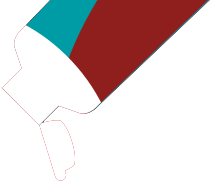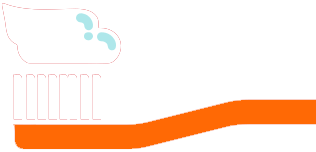If you're concerned about a weakness or paralysis you've recently noticed in your tongue, or if you're just curious about the nerves that make up this unique muscular organ, you may come across the term "hypoglossal nerve." Our bodies contain twelve cranial nerves, and one of these nerves, the hypoglossal nerve, is intimately related to the oral cavity. Also known as the twelfth cranial nerve, it controls the muscles of the tongue. Let's go over this nerve's anatomy and function, how it can potentially be damaged, and symptoms of damage to be aware of.

The Hypoglossal Nerve: The Brain Behind the Tongue
Medically Reviewed By Colgate Global Scientific Communications
Anatomy and Function
At this point, you may be wondering what part of the brain controls the tongue. The twelfth cranial nerve comes from the medulla oblongata, a part of the brain stem. From there, it passes through the space underneath the tongue to reach the tongue muscles. Did you know that the hypoglossal nerve's name comes from the path it takes below the tongue? "Hypo" means below, and "glossal" means relating to the tongue.
The hypoglossal nerve is a motor nerve, and it controls the muscles of the tongue that allow for speech and swallowing. The tongue's extrinsic muscles help it move in different directions, while the intrinsic muscles help it make movements such as curling. The extrinsic muscles controlled by the hypoglossal nerve are as follows:
- The genioglossus muscle helps move the tongue out of the mouth.
- The hyoglossus muscle moves the tongue down to flatten it.
- The styloglossus muscle retracts the tongue back into the mouth and elevates it.
Clinical Oral Anatomy notes that there is another extrinsic muscle, but the hypoglossal nerve does not control it. This muscle is the palatoglossus muscle.
What Might Damage the Twelfth Cranial Nerve?
It's rare to see damage to the twelfth cranial nerve on its own. However, several reasons could cause you to experience hypoglossal nerve damage. As noted in the Merck Manual, these reasons include strokes, tumors, specific injuries or infections, injuries, or amyotrophic lateral sclerosis (ALS).
Symptoms of Twelfth Cranial Nerve Damage
If your hypoglossal nerve has been damaged, it may affect how you move your tongue. This can, in turn, affect your speech, chewing, and swallowing, making the tongue feel like it's twitching. Sometimes, a person could even experience slurred speech or feel as though they're choking when eating or drinking.
If you experience any of these symptoms, your medical professional will likely want to conduct further analysis to determine the precise cause. They may order an MRI or CT scan, especially if they suspect a tumor might be the cause of the nerve damage.
Treatment Options
Your doctor can explore various hypoglossal nerve treatment options, depending on the cause of the nerve damage. If an infection or tumor is the source of the symptoms, your medical professional will likely want to take steps to manage the infection or remove the growth. If an underlying condition is causing the problem, getting a diagnosis will help your doctor determine the best course of treatment.
Because twelfth cranial nerve damage is highly complex, it requires coordination among dental professionals, neurologists, primary care physicians, and possibly even specialists in infectious diseases or oncology. If you can't move your tongue correctly, the first step is to notify your medical or dental provider. While it can be frustrating to see different medical and dental professionals while they work to diagnose you, remember that a proper diagnosis will help get you the necessary treatment. Your medical team will work together to determine what is affecting your hypoglossal nerve.
Oral Care Center articles are reviewed by an oral health medical professional. This information is for educational purposes only. This content is not intended to be a substitute for professional medical advice, diagnosis or treatment. Always seek the advice of your dentist, physician or other qualified healthcare provider.







